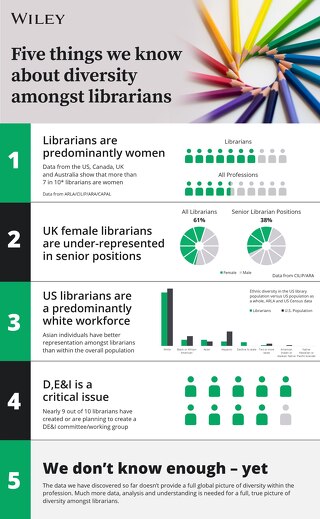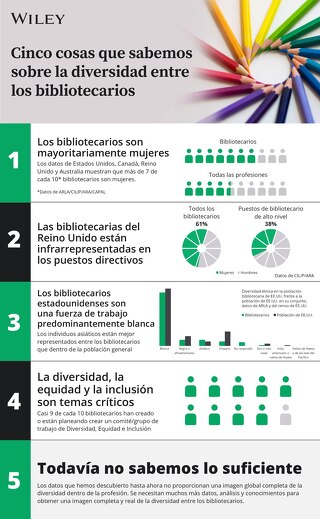3-steps-to-becoming-a-leader-in-an-academic-library
August 22, 2018
In 2015, Jason Martin published exploratory research with the American Library Association which begins “One of the most important parts of any organization is leadership.” The research explores leadership style in academic libraries and suggests that who a library has for its leader is critical to the success of that library. But in an industry where librarians are being asked to constantly evolve their own skills and do more for their institution and patrons, is there room for every librarian to become a leader?
What is a Leader?
According to businessdictionary.com a leader is ‘a person or thing that holds a dominant or superior position within its field and is able to exercise a high degree of control or influence over others’. This simplistic definition focuses on position and control, and quite simply doesn’t allow for the collaborative networks that academic librarians can often find themselves part of. Assuming this definition would imply that no, there isn’t an opportunity for leadership for everyone. Working with fellow library staff, researchers, students, faculty and other stakeholders puts librarians in a complex position where position and influence are not necessarily in direct correlation, and this could put them at a disadvantage.
However, Gamelearn – a learning company – explored ‘What is Leadership’ in a 2016 blog post that perhaps offers a more flexible definition. They define leadership based on common elements of vision, motivation, service, empathy, creativity, thoroughness, management, risk taking and improvement. Thinking about leadership as a set of skills and mindsets, instead of a hierarchy, offers those working in complex networks a way of becoming a leader and suggests that everyone can take steps towards leadership. Exploring the list suggested by Gamelearn, these leadership requirements can be further divided into several areas for library staff:
- Communication
Academic libraries can be central to discussions around purchasing, how best to support patrons and where to invest for resourcing and so any good leader in a library must know how to communicate with those around them. Key skills include being able to put your vision and goals into words for others to share. Choosing your words carefully can help to motivate peers to work towards these same goals and showing empathy for their situation, challenges and pressures will further encourage them to work with you. - Support
Strong leaders don’t just lead from the front, they also ensure continued support to work with their surrounding team and stakeholders. For academic libraries this is particularly important as they’re often involved in so many different aspects of the institution, all relevant stakeholders need to be able to keep up. This requires careful management of any process or project, ensuring you approach all aspects with a thoroughness that considers the impact for all involved. - Innovation
Sometimes being a leader means being the first and the same is true in the world of academic libraries. Taking the first step towards change can demonstrate leadership – whether that’s as a team or as an individual. This could come from a spark of creativity or perhaps taking a risk with a new change in the library, exploring new ways to improve processes or library support.
If we accept that leadership relates to skills rather than the circumstances of your role, what are some simple first steps someone working in an academic library can take to build these skills and position themselves as a leader? How can focusing on communication, support and innovation help to drive leadership?
The First Steps to Become a Leader
- Communicate - Start a discussion
Starting an open conversation with colleagues could be the first step to feeling like a leader, whether it’s about an industry hot topic, innovation you’ve seen introduced elsewhere that might benefit your institution, or simply a discussion about what’s affecting you in your role. Talking openly and providing your peers with a platform to do the same can help to position you as forward-thinking and a potential leader. - Support - Improve a process
Making small changes to an existing process within the library can demonstrate to others that you have a keen idea for making improvements where needed. If the process affects colleagues, this can be an excellent opportunity to collaborate as well, building your network and giving you support for any future leadership opportunities. - Innovate - Explore new ideas
Whatever aspect of leadership you’re looking to develop and whatever your goals are, you should always be open to new ideas. Leaders help move things forward and that’s only possible when you’re moving forward yourself. Explore, experiment and don’t be afraid to fail. By demonstrating your openness to new ideas, you’ll also show your willingness to find the right path forward for both you, your colleagues and your institution.
And finally – remain passionate
While you might not be giving the next TED talk, showing your passion around a subject can do wonders for positioning you as a leader amongst your peers. If you have a real interest in an area of librarianship or something that affects your institution, take advantage of this and take any opportunity you can to showcase this.
Do you have any experience in leadership? Are you interested in sharing your thoughts with peers? Get in touch and share your thoughts in the comments below.










